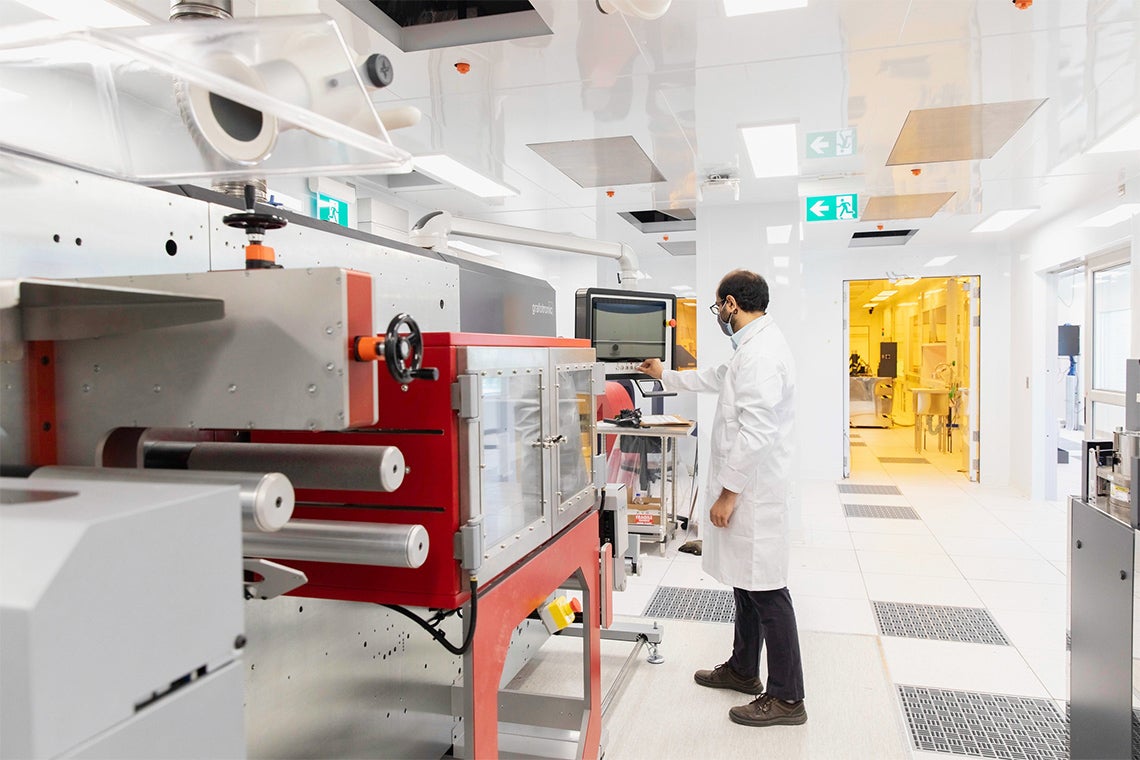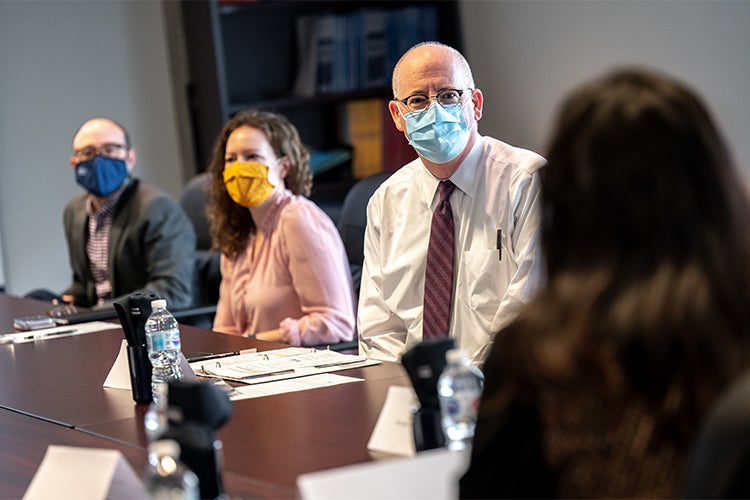
The Centre for Research and Applications in Fluidic Technologies (CRAFT) – a partnership between the University of Toronto and the National Research Council of Canada (NRC) – has launched a new research facility on U of T’s St. George campus.
The Device Foundry will bring together researchers, clinicians, entrepreneurs and industry collaborators with a goal of advancing micro-nano fluidic device fabrication. Housing equipment to support large-scale production of biomedical devices, the facility has the capability to quickly commercialize new technologies in health care.
“The opening of the new Device Foundry marks a huge milestone for CRAFT,” said Axel Guenther, a professor of mechanical engineering in the Faculty of Applied Science & Engineering and the co-director of CRAFT.
“Many individuals from U of T and the NRC came together to make this unique space a reality. With the launch of this open-research facility, we are now well positioned to advance the field of microfluidics and serve as a hub for collaborations that will bring innovative technologies to the health-care community.”
Iain Stewart, president of NRC, toured the new facility this week with senior U of T leaders and researchers, stopping to visit the Device Foundry’s lithography cleanroom, fabrication room and the 3D printing station.

Iain Stewart, president of the National Research Council of Canada, met with senior U of T leaders and researchers. (Photo by Dahlia Katz)
In her welcoming remarks, Christine Allen, associate vice-president and vice-provost, strategic initiatives, said the national hub will leverage U of T’s multidisciplinary strengths and provide “unparalleled hands-on learning opportunities,” to students and post-doctoral researchers.
Allen added that the investment “will translate into clinical device innovations and position Canada at the forefront of the microfluidics field.”
The Device Foundry is set up to rapidly produce and deploy polymer-based biomedical microdevices, including organ-on-a-chip models of heart tissues and handheld 3D skin printers. The facility features a new micro-injection molder that will allow for thousands of micro-fluidic devices to be created every hour, a micro-milling machine for creating molds, a roll-to-roll polymer coater, multiple embossers, a laser cutter, a glass 3D printer and a nano-scale 3D printer.
“Congratulations to the CRAFT team for the opening of the new facility in Toronto,” said Teodor Veres, co-director of CRAFT and R&D director of the Medical Devices Research Centre at the NRC. “This space adds significant technological and scientific assets to the existing world-class microfluidic device R&D capacity at NRC in Boucherville, Que.
“Together, these two CRAFT labs will enable the development, deployment and validation in clinics of emerging lab-on-chip systems made in Canada.”

Christine Allen, associate vice-president and vice-provost, strategic initiatives, said the new facility will provide “unparalleled hands-on learning opportunities.” (Photo by Dahlia Katz)
U of T has one of the world’s largest microfluidic device research communities with more that 50 investigators, including CRAFT co-leads Milica Radisic and Aaron Wheeler – both professors in the department of chemistry in the Faculty of Arts & Science and at the Institute of Biomedical Engineering. The NRC in Boucherville, meanwhile, has 40 scientists contributing to micro-nano device research in areas such as diagnostics, precision medicine and cell-based therapy.
“The hope is for the spirit of collaboration that went into creating CRAFT, and this new space, to be reflected in the work that comes out of it,” said Guenther. “With the investment from the NRC, we now have dedicated technician support to train students, maintain the equipment and help researchers and start-ups bring their devices directly to the communities that will use them.”
Added Veres: “CRAFT will aid Canada’s medical device sector growth and support the discovery of new knowledge that can be translated into innovative technology-driven products, processes and services. The Device Foundry will also offer a unique work-integrated learning environment and development opportunities for the workforce of the future, keeping our highly-trained personnel in Canada.”








